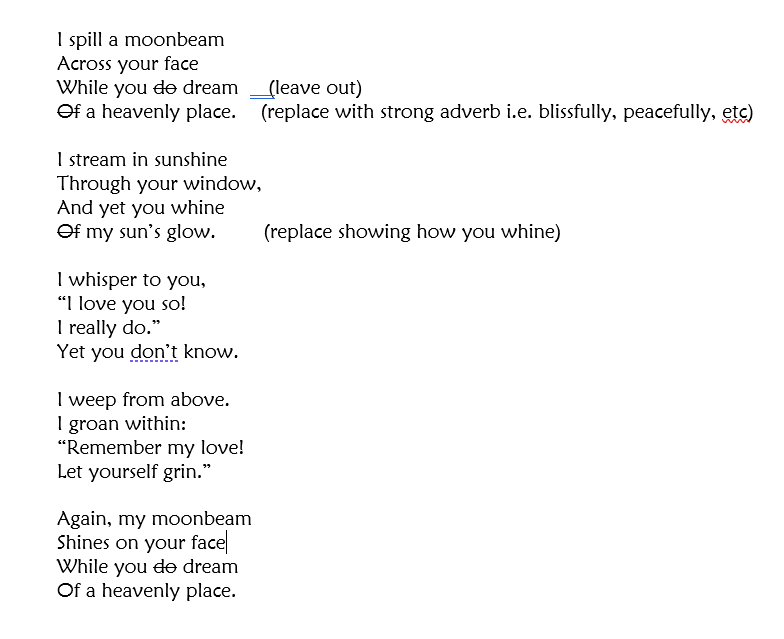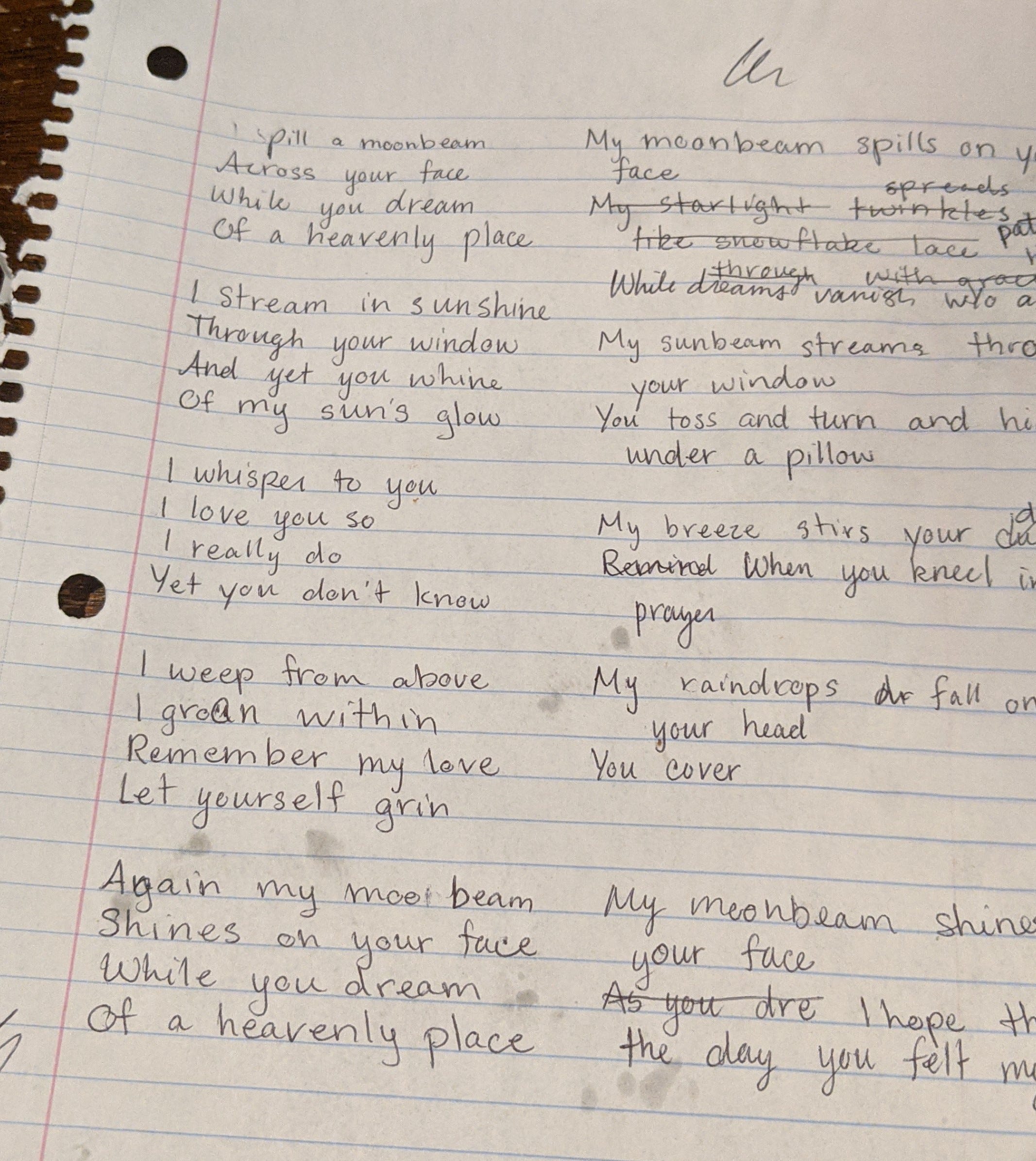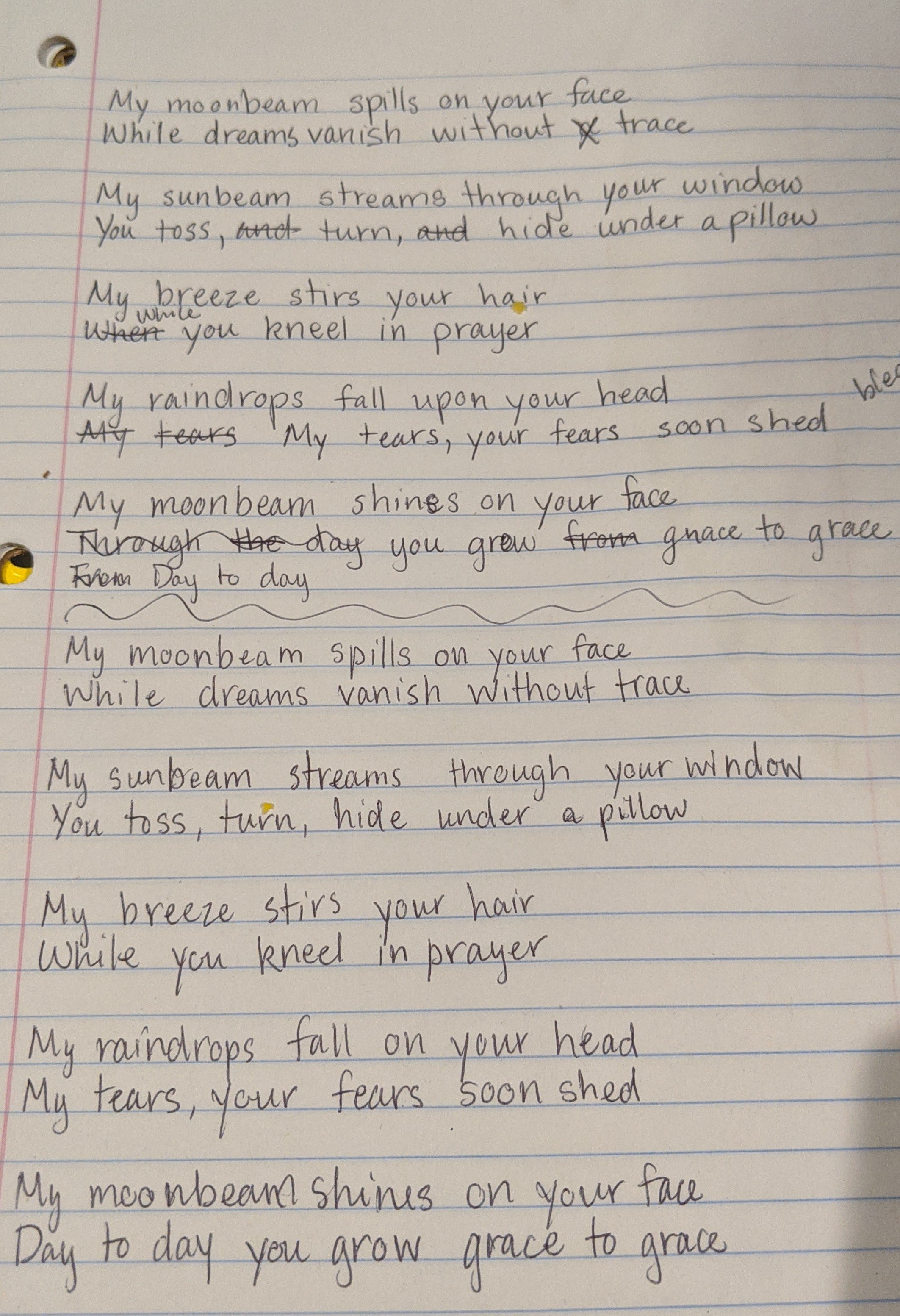As a teenager, I often gazed at the moon and stars through my bedroom window. God’s creations bore witness of his love for me. I contemplated how I could personify this message in poetry.
I wrote my first draft entitled “I spill a moonbeam” during my high school freshman or sophomore year. The words came as a song. Whenever I shared this poem, I sang it. I sang this poem to a friend during a sleepover. She complimented my singing voice, which I had never considered as beautiful, just off-key.
My first draft reads thus:
I spill a moonbeam
Across your face
While you do dream
Of a heavn’ly place.
I stream in sunshine
Through your window,
And yet you whine
Of my sun’s glow.
I whisper to you,
“I love you so!
I really do.”
Yet you don’t know.
I weep from above.
I groan within:
“Remember my love!
Let yourself grin.”
Again my moonbeam
Shines on your face
While you do dream
Of a heavn’ly place.
I showed this poem to another friend. She noted that the “do” felt repetitive. She wondered why people added “did” and “do” to poetry. I figured the “do” belonged in the first stanza because it kept the rhythm. I didn’t remove it.
A few years ago, I compiled a nature booklet that I hoped to sell on Amazon. I asked a retired English teacher from my hometown to look it over. She suggested removing the “do.” Here are her suggestions:

I finally gave up the “do” for the next beta reader. Here are her suggestions:

This revision still lacked the poignancy I wanted, so my mind percolated on how to improve the poem for the last few years. Last month, I finally wrote a revision late at night.
Here was my revision process:


Without further ado, here is the final revision of my poem:
My moonbeam shines on your face
While dreams vanish without trace
My sunbeam streams through your window
You toss, turn, and hide under a pillow
My breeze stirs your hair
While you kneel in prayer
My raindrops fall on your head
My tears, your fears soon shed
My moonbeam shines on your face
Day to day, you grow grace to grace



